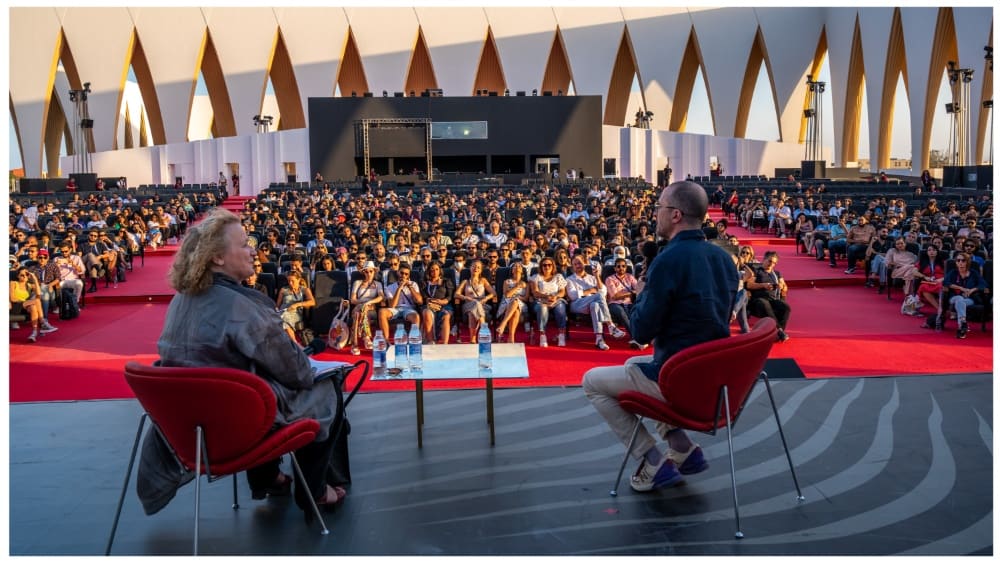After taking a year off, the Egyptian film festival El Gouna is returning. The festival this year promises to have a wide range of Arabic and foreign films, and through its CineGouna industrial section, several intriguing Arab projects will be exposed to possible partners.
El Gouna was built in 2017 by Egyptian telecoms tycoon Naguib Sawiris, whose brother Samih built the resort next to Hurghada, a well-liked vacation destination 250 miles south of Cairo. In 2022, the festival was reportedly temporarily suspended due to the nation’s economic problems.
Amr Mansi and Intishal Al Timimi, co-founders of the festival, successfully launched El Gouna onto the world film festival scene over the course of five prior editions while also turning it into a popular event among local viewers.
A festival organizer named Intishal Al Timimi said, “One silver lining to the fact that we had to skip a year is that it became evident how much the Egyptian audiences missed us, as well as the Arab and global film communities.” He continued by stating, “Now that we’re back, we’ve come up with an improved program, both in terms of the film selection and the festival’s industry-related activities.”
More about El Gouna
Marianne Khoury, a renowned Egyptian producer-director, has joined Al Timimi’s team and is now the artistic director.
Together, they have carefully selected a program that supports female directors, emphasizes a wider geographic range for foreign titles rather than concentrating primarily on Europe, and includes works from renowned filmmakers like Todd Haynes’ “May December,” Luc Besson’s “Dogman,” and Korean director Hong Sangsoo’s “In Our Day.”
The collection also includes a sizable number of works that are debuts. Notably, Besson is anticipated to visit the event and lead a masterclass.
Funny comment from Khoury: “A majority of the recognized filmmakers in the lineup happen to be men.” She does draw attention to the fact that the El Gouna lineup includes two English-language debuts directed by women.
These movies are “Family Portrait” by Lucy Kerr, which is set in Texas and concerns a young woman going home for a family gathering in the midst of an imminent catastrophe, and “Scrapper” by Charlotte Regan, which is about an inventive 12-year-old orphan living in East London.
Known for her work on “Quo Vadis, Aida?,” Bosnian filmmaker Jasmila Zbanic will preside over the jury for the festival’s sixth iteration, which runs from October 13 to October 20. Notably, the festival’s primary jury will be made up exclusively of women this year.

Which films are competing in El Gouna?
Arabic films will compete against international submissions in the El Gouna Film Festival’s competition area for a prize pool that exceeds $200,000. One of these movies is “Goodbye Julia,” directed by Sudanese filmmaker Mohamed Kordofani.
It is a contemporary morality tale that is set soon before South Sudan seceded in 2011. The comedy “The Shanabs,” helmed by Egyptian filmmaker Ayten Amin, is another option.
It centers on a burial in Alexandria and the comical scenarios that result from it. Another entry is “Birdland (Indivision),” a film by Moroccan director Lela Kilani that is based in El Mansour, close to Tangier, and blends social allegory and family melodrama.
The world debut of “The Goat,” an Arabic-language female drama by multi-talented Italian artist Ilaria Borrelli, which stars Mira Sorvino, John Savage, and an impressive ensemble of Egyptian performers, will take place at the festival but is not included in the competition section.
At the El Gouna Festival, documentaries with a strong female perspective are highlighted. This includes the French-Iraqi filmmaker Leila Al Bayaty’s film “From Abdul to Leila,” which explores the lingering effects of Saddam Hussein’s rule.
Ibrahim Nash’at’s “Hollywoodgate” is another entry; it provides a first-person description of the Taliban’s seizure of a former American military installation in Kabul and sheds insight on the significant changes Afghan women’s lives have undergone since their return.
A mother and her two daughters who work as wedding musicians in Tunisia are intimately portrayed in “Machtat,” a film by Tunisian-French director Sonia Ben Slama. Last but not least, Lebanese-American director Jude Chehab’s “Q” examines the effects of her mother, Hiba, belonging to a secretive, all-female religious cult in Syria.





